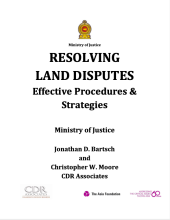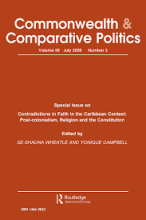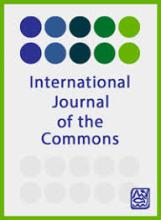/ library resources
Showing items 1 through 9 of 6390.The state owns over 80% of the land in Sri Lanka. The remainder is owned by private parties.
This manual outlines dispute resolution mechanisms, procedures and strategies that are or will be put in place by the Sri Lanka Ministry of Justice’s Special Mediation Boards (Land) to promote the resolution of a variety of housing, land and property disputes in the country.
Coming two years after a political transition from post-war authoritarianism, this Shadow Report to the United Nations Committee on Economic Social and Cultural Rights is framed in the backdrop of two concurrent processes of ‘transformation’ currently underway in Sri Lanka.
Land administration in Sri Lanka is institutionally and functionally fragmented and geographically incomplete. The current situation is an impediment to spatial planning and land and natural resources management with direct impact to economic growth and social development.
Land has been one of the major concerning factors in escalating disputes and conflicts between ethnic groups in Sri Lanka, including the violation of minority rights.
As gold prices soared from 2008 onwards, tens of thousands of foreign miners, especially from China, entered the small-scale mining sector in Ghana, despite it being ‘reserved for Ghanaian citizens’ by law.
Despite the difference in their populations and political status, New Caledonia and Papua New Guinea have comparable levels of economic dependence on the extraction and export of mineral resources.
In Timor-Leste, customary institutions contribute to sustainable and equitable rural development and the establishment of improved access to and management of land, water and other natural resources.
Pagination
Land Library Search
Through our robust search engine, you can search for any item of the over 73,000 highly curated resources in the Land Library.
If you would like to find an overview of what is possible, feel free to peruse the Search Guide.









